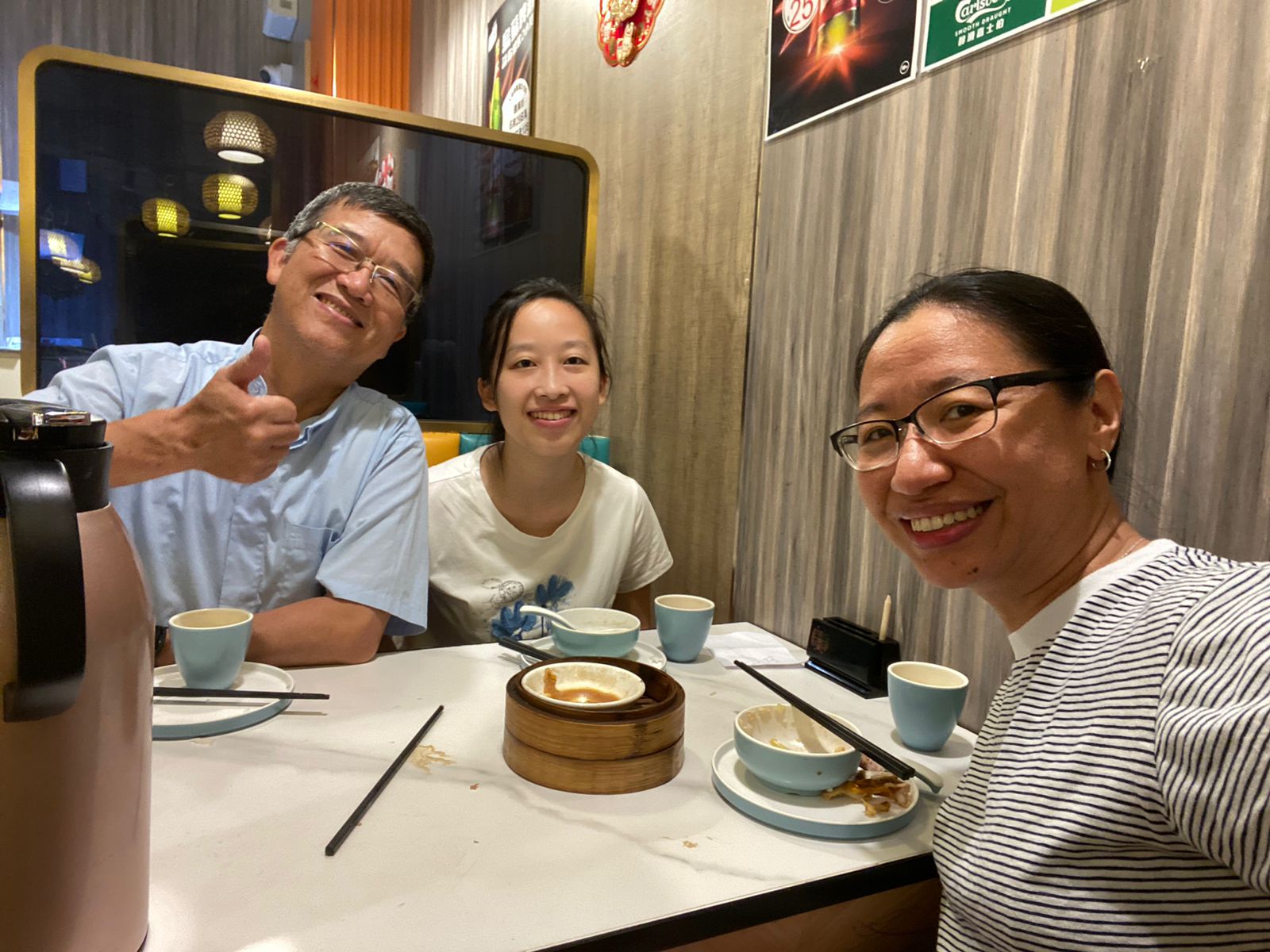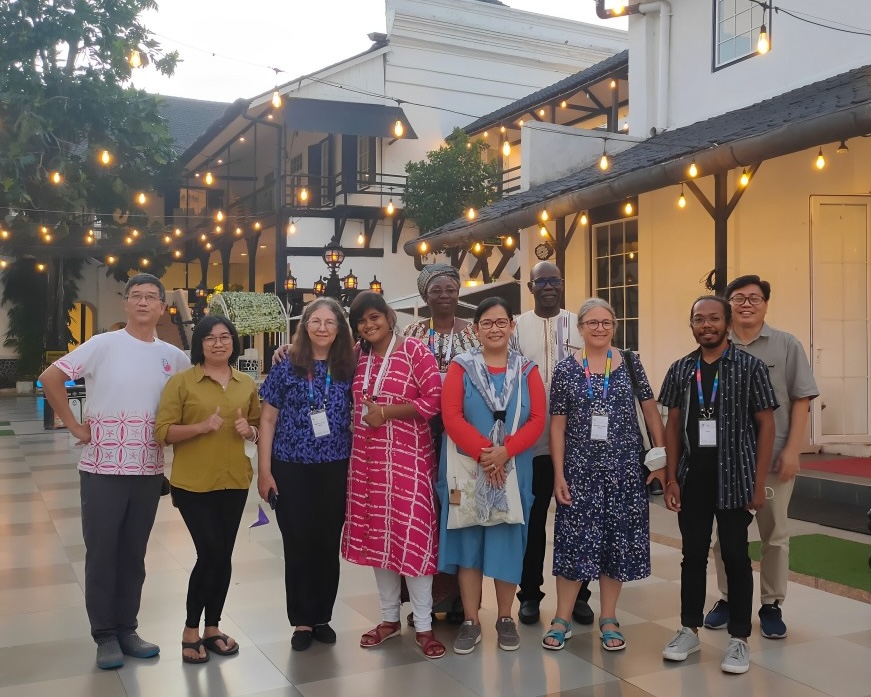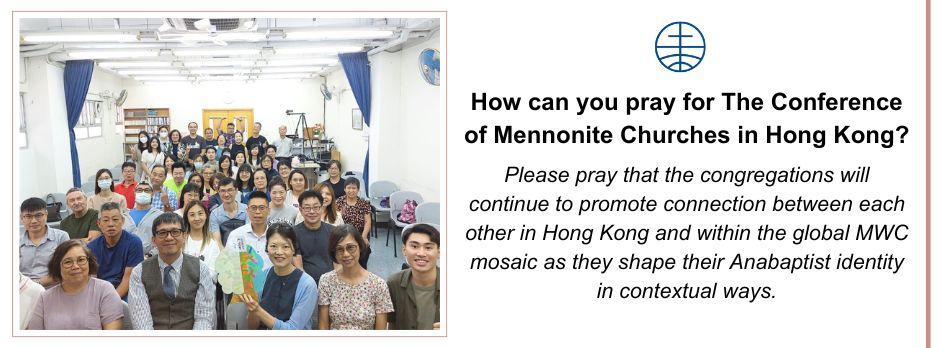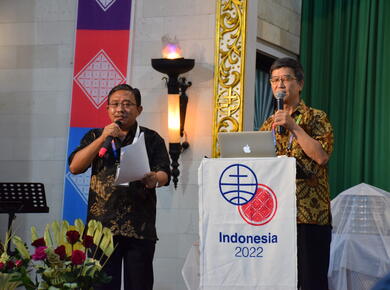Posted: May 16, 2024
Jeremiah Choi, MWC regional representative for North Asia, retired as lead pastor of Agape Mennonite Church in Hong Kong in November 2023. Elina Ciptadi (MWC Interim Chief Communications Officer) sat down with him at the Executive Committee meetings in Curitiba, Brazil, in April 2024, to gather his reflections on this transition period.
“The calling has to come first. One shouldn’t be a pastor if not called and passionate about it,” says Jeremiah Choi.
Being a pastor is more a calling than a profession. So how does one retire?
“Pastors need to look at our limitations as we get older. We need to evaluate our health, cognitive ability, physical strength. I have to admit that I don’t remember as many details as I was able to in the past. I don’t want the church to be disadvantaged because of that,” he says.
“This is why a succession plan is important and should be included in the church regulation.”
“Even if the church feels they still need you and want to keep you longer, it should be reviewed on a yearly basis. It should not be a given that one person will stay as lead pastor for life. Every church must plan for succession,” he says.
What Jeremiah Choi found gratifying in preparing for retirement was the ability to mentor his successor.
“We still meet regularly in a mentor-mentee relationship. He is the lead pastor as well as the youth pastor. (The church is small and can only afford one pastor.) It’s time for him to lead.”
Although no longer senior pastor at Agape Mennonite, Jeremiah Choi continues to serve as consultant pastor on a voluntary basis. He also represents the congregation to the other two Mennonite churches in Hong Kong.

“This is probably one day a week of my time. What’s different is that I no longer have responsibility to care for all church members, being in charge of everything. As one of two voluntary pastors in the church, I now focus on the senior citizen ministry of the church while the other volunteer works more on women’s ministry,” he says.
Within his capacity as representative to the three Mennonite churches in Hong Kong, Jeremiah Choi hopes to grow the Mennonite church as a denomination in Hong Kong. “Every lead pastor of the three churches is focused on the work of their local church, and I’m happy to be able to help on how the three churches can collaborate on growing the denomination.”
Besides his roles in his local and national church, Jeremiah Choi serves as the MWC North Asia regional representative, covering Hong Kong, Taiwan, Japan and South Korea.
“Being connected to MWC makes us realize that we are not alone. We have brothers and sisters around the world who pray for us, stand with us in solidarity, and also support us in practical ways when we are in need,” he says.
That solidarity was shown by a delegation visit from the Peace and Deacons Commissions in 2019 at a time of political protests.
“Our church remembers this visit very fondly,” says Jeremiah Choi.
“MWC’s work in promoting connection between churches and shaping our Anabaptist identity have greatly benefited our church. Many small churches like ours don’t have the resources for this, but we know we can rely on MWC or other churches to use existing materials. I look forward to continuing to serve with MWC.”

When we are in need: Burkina Faso’s gift to Hong Kong
Those connections between churches produced a gift that touches his heart still.
Among the first to introduce measures against infections from COVID-19, Hong Kong had a shortage of masks in early 2020. Jeremiah Choi put out a call for masks to the global church.
West Africa regional representative Siaka Traoré was the first to respond.
“Siaka had to walk far to the city to buy those masks and send them to us. Then brothers and sisters in India also sent us masks.
“The care extended to us really touched the church members,” he said.
About MWC national member church: the Conference of Mennonite Churches in Hong Kong
The Conference of Mennonite Churches in Hong Kong consists of three Mennonite congregations in the Hong Kong Special Administrative Region of China that is home to 7 million people. Following Mennonite Central Committee relief work with mainland Chinese refugees in the 1950s and North America mission workers starting in the 1960s, the church was officially established in 1985.




Comments: